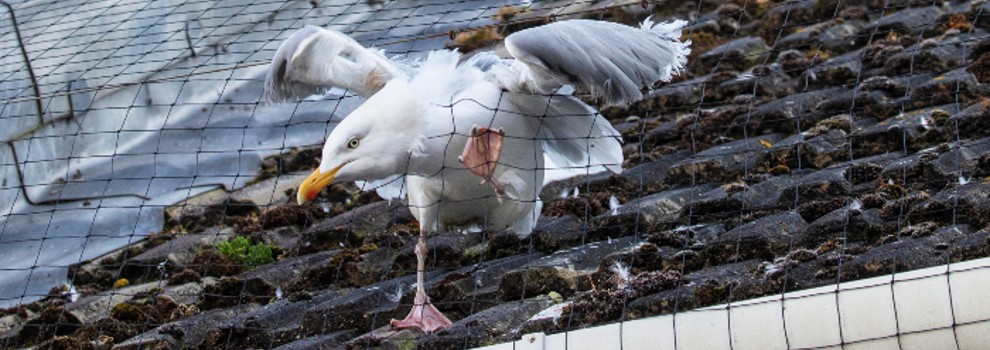- Find a Pet
- Advice and Welfare
- Ways to Give
- Get Involved
- What We Do
- Search
- My RSPCA
- Report a concern
- Gift in Wills
-
Colour modeVivid Calm
- Home
- Advice and welfare
- Wildlife
- Wildlife deterrents
Wildlife deterrents and population control
When wildlife starts to pose a problem to people, there are humane ways to go about deterring animals and controlling populations.
Here are some of the kinder ways to do this - and the methods to avoid.

Humane rodent control
There are humane and inhumane ways to control the population of rats and mice. Poisoning rodents causes them to suffer and can result in secondary poisoning of predators feeding on poisoned animals.
Instead, it's always better to use humane deterrents first, so take a look at our wild rats and mice advice to find ways to avoid attracting rodents to your home.
You should only use traps in certain circumstances, but remember that some are not only inhumane towards rodents but can also harm animals they're not intended for.
Wild birds and netting
Bird netting used to keep birds away can trap or kill wild birds if it's not installed or looked after properly. Netting can also stop birds from getting to hedgerows, trees or other nesting areas they need.
If you see a live bird trapped in netting, please call our cruelty and advice helpline on 0300 1234 999. If you have seen dead birds in netting, or where you're aware birds are regularly becoming trapped in netting, please email wildlife@rspca.org.uk with details of the address where the netting is located, the property owner if known, and the date you saw the birds. We'll then write to the owner of the property to ask them to repair the netting and set up a maintenance plan to prevent birds from becoming trapped in the future.
Glue traps
Also known as glue boards or sticky boards, glue traps are made of cardboard, plastic or wood, coated with a non-drying adhesive or a shallow tray of adhesive.
We believe that glue traps are cruel, and their indiscriminate nature means that many non-target species are caught out and suffer - even pets.
Why glue traps are so dangerous
When animals cross the glue board they get stuck by their feet. Unable to free themselves, other parts of their body then become stuck, further entrapping them. In trying to get free, they may rip out fur, break bones, and even gnaw through their own limbs to escape.
After a few hours, animals have been reported as covered in their own faeces and urine. If trapped animals are left unattended, they'll die slowly from dehydration, starvation or exhaustion.
Let us know if you find glue traps being used or sold
In 2024, it became illegal for the public to use glue traps. Professional pest controllers are only allowed to use them under special circumstances, and only if licensed.
It is still legal for glue traps to be sold to the public, even though it is illegal for the public to use them. If you have seen glue traps being sold, please let us know, and we’ll contact them to explain why they shouldn’t stock them. Please forward the following information to wildlife@rspca.org.uk:
- Name and address of the store where the traps are being sold (include postcode where possible)
- The name of the manager or owner of the store concerned (if known) and the address if different to above
- The date you saw the traps on sale.
To report live animals caught in glue traps, please call our cruelty and advice helpline on 0300 1234 999.
Follow the links below to learn more about living with wildlife and humane ways of deterring wild animals.



